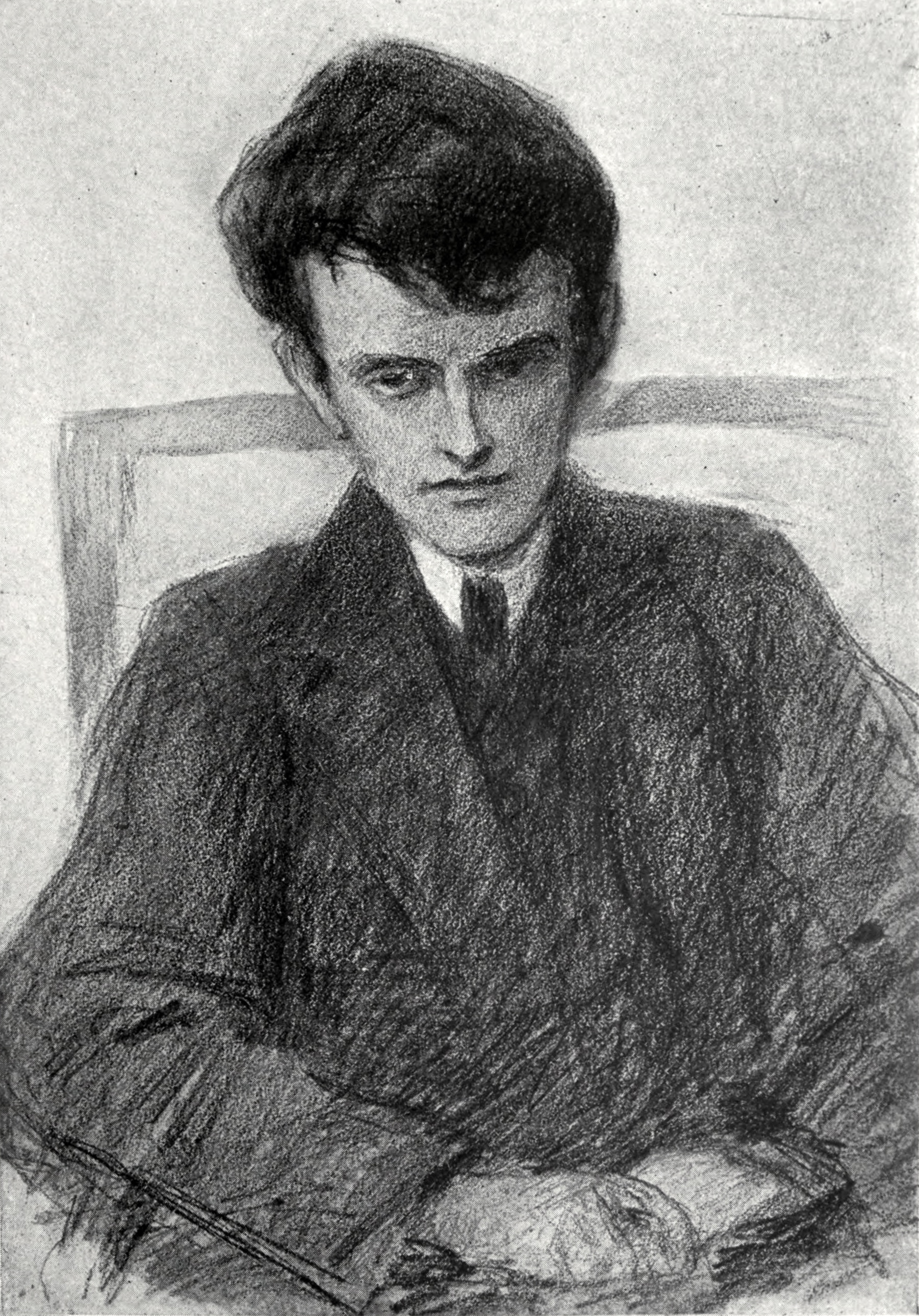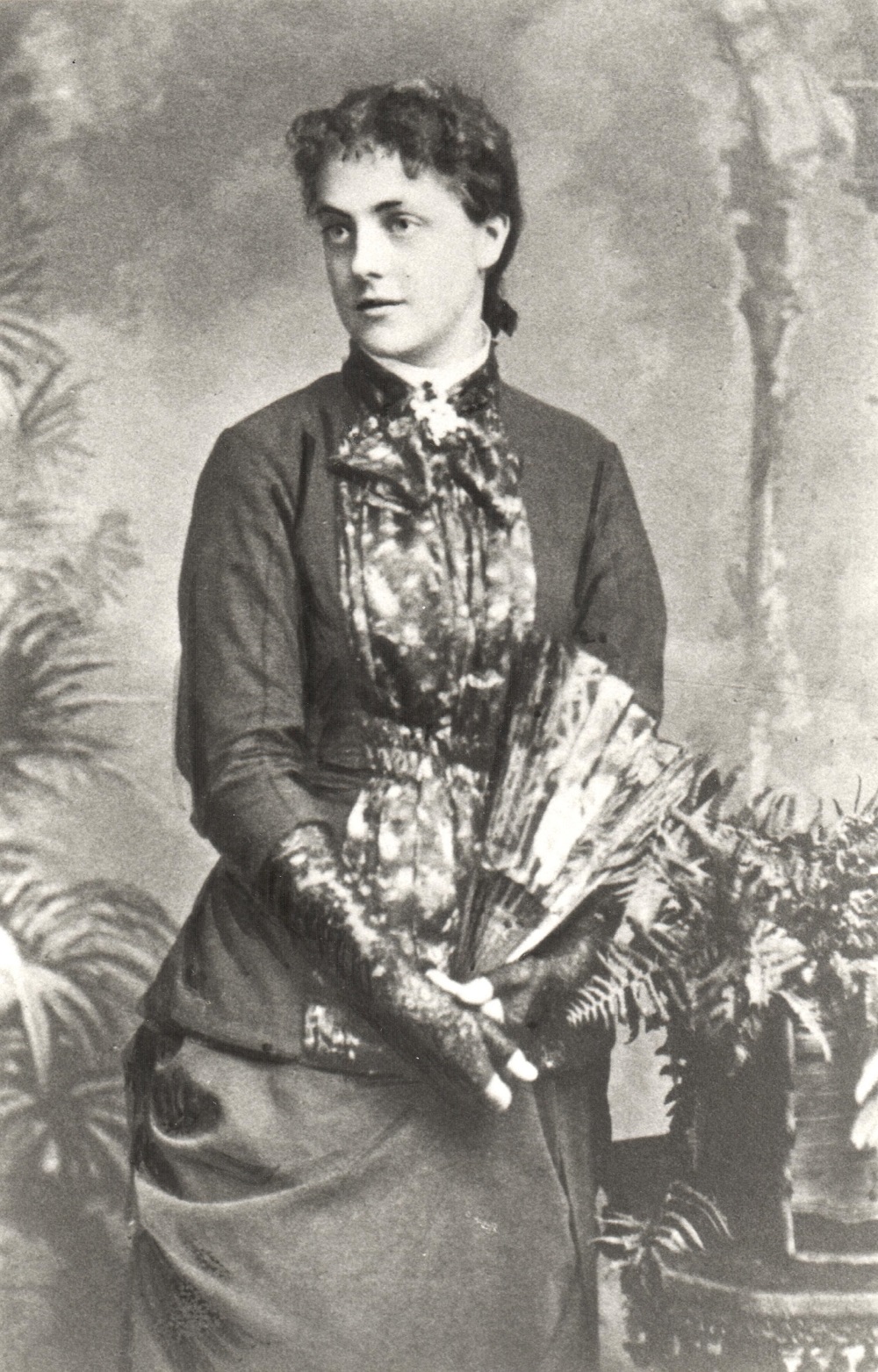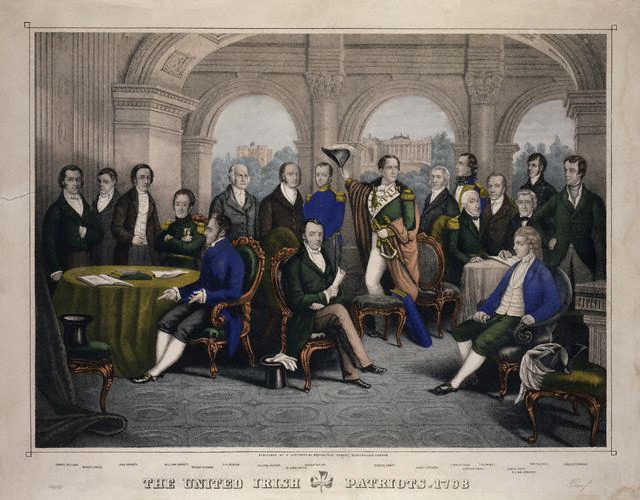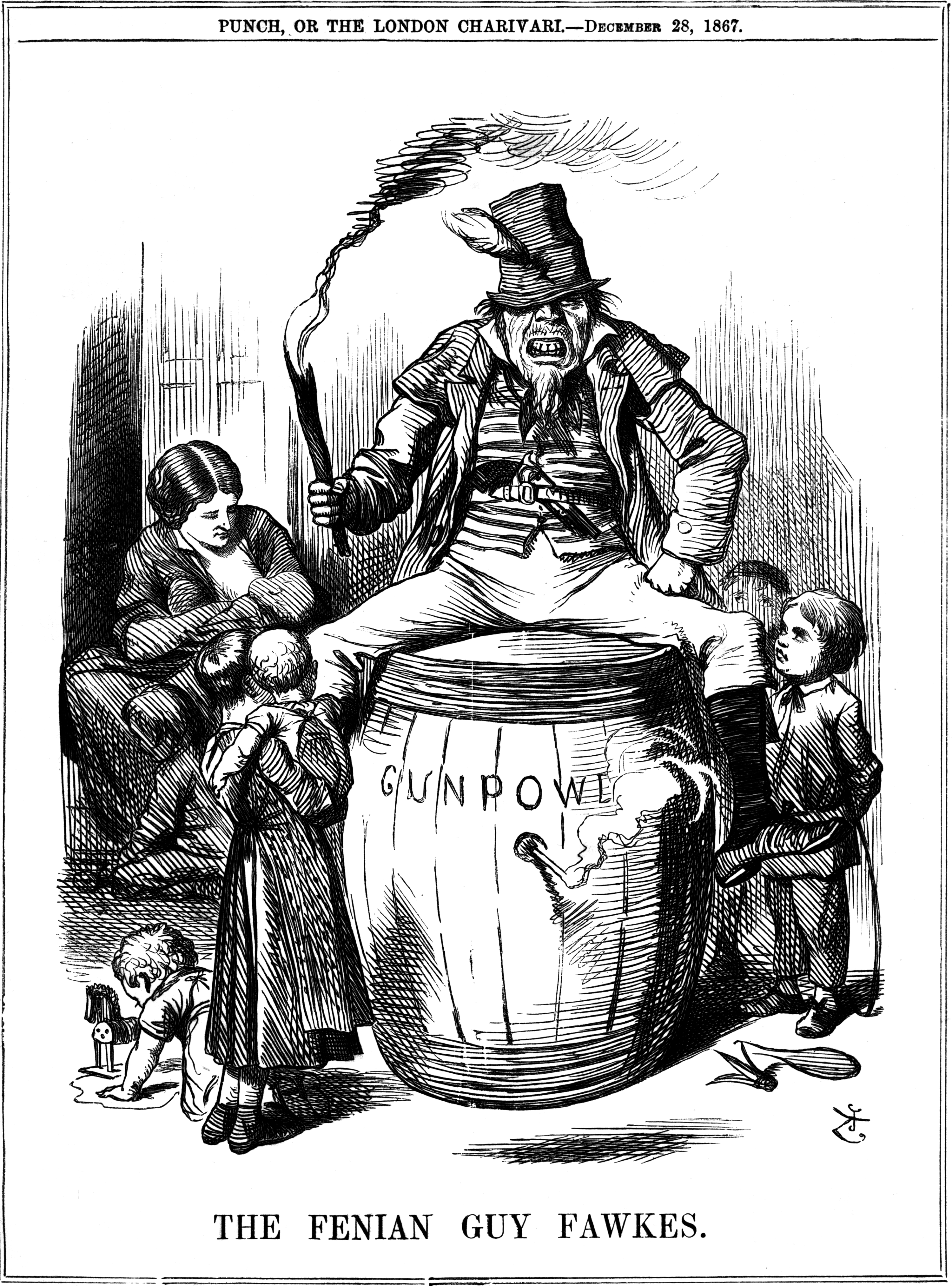|
Ethna Carbery
Ethna Carbery, born Anna Bella Johnston, (3 December 1864 – 2 April 1902) was an Ireland, Irish journalist, writer and poet. She is best known for the ballad ''Roddy McCorley'' and the ''Song of Ciabhán''; the latter was set to music by Ivor Gurney. In Belfast in the late 1890s, with Alice Milligan she produced ''The Shan Van Vocht'', a nationalist monthly of literature, history and comment that gained a wide circulation in Ireland and in the Irish diaspora. Her poetry was collected and published after her death under the pen name Ethna Carberry, adopted following her marriage to the poet Seumas MacManus in 1901. Life She was born Anna Bella Johnston on 3 December 1864 in the townland of Kirkinriola, Ballymena, County Antrim, the daughter of Robert Johnston, a timber merchant and a leading member of the Irish Republican Brotherhood, and Marjorie (Mage) Magee, who came from County Donegal. Born in 1839 her father had grown up hearing stories from the last veteran Society of Uni ... [...More Info...] [...Related Items...] OR: [Wikipedia] [Google] [Baidu] |
:Template:Infobox Writer/doc
Infobox writer may be used to summarize information about a person who is a writer/author (includes screenwriters). If the writer-specific fields here are not needed, consider using the more general ; other infoboxes there can be found in :People and person infobox templates. This template may also be used as a module (or sub-template) of ; see WikiProject Infoboxes/embed for guidance on such usage. Syntax The infobox may be added by pasting the template as shown below into an article. All fields are optional. Any unused parameter names can be left blank or omitted. Parameters Please remove any parameters from an article's infobox that are unlikely to be used. All parameters are optional. Unless otherwise specified, if a parameter has multiple values, they should be comma-separated using the template: : which produces: : , language= If any of the individual values contain commas already, add to use semi-colons as separators: : which produces: : , pseu ... [...More Info...] [...Related Items...] OR: [Wikipedia] [Google] [Baidu] |
Irish Republican Brotherhood
The Irish Republican Brotherhood (IRB; ) was a secret oath-bound fraternal organisation dedicated to the establishment of an "independent democratic republic" in Ireland between 1858 and 1924.McGee, p. 15. Its counterpart in the United States of America and Canada was initially the Fenian Brotherhood, but from the 1870s it was Clan na Gael. The members of both wings of the movement are often referred to as "Fenians". The IRB played an important role in the history of Ireland, as the chief advocate of republicanism during the campaign for Ireland's independence from the United Kingdom, successor to movements such as the United Irishmen of the 1790s and the Young Irelanders of the 1840s. As part of the New Departure of the 1870s–80s, IRB members attempted to democratise the Home Rule League and its successor, the Irish Parliamentary Party, as well as taking part in the Land War. The IRB staged the Easter Rising in 1916, which led to the establishment of the first Dáil Éir ... [...More Info...] [...Related Items...] OR: [Wikipedia] [Google] [Baidu] |
Margaret Pender
Margaret Pender (1848 – 17 March 1920) was a Belfast-based Irish writer whose fiction and poetry appeared regularly in the nationalist press. Early life Margaret Pender was born Margaret Teresa Doherty in 1848 or 1850 in the townland of Ballytweedy, near Templepatrick in County Antrim. Her parents were farmer, Daniel, and Margaret Doherty (née White). Her father was from a poor Catholic background, and her mother was a wealthier Presbyterian who disowned her after her marriage. She was the youngest daughter of the couple's 7 children. There was a literary and nationalist tradition in the family, her maternal grandfather, William White, and her mother were poets. Pender started to write verse from a young age. Pender was educated at home, as well as attending Ballyrobin national school and Convent of Mercy, Belfast Belfast (, , , ; from ) is the capital city and principal port of Northern Ireland, standing on the banks of the River Lagan and connected to the open sea ... [...More Info...] [...Related Items...] OR: [Wikipedia] [Google] [Baidu] |
Katherine Tynan
Katharine Tynan (23 January 1859 – 2 April 1931)Clarke, Frances (2013)"Hinkson (née Tynan), Katharine Tynan" in ''Dictionary of Irish Biography'' (Cambridge: Cambridge University Press). was an Irish writer, known mainly for her novels and poetry. After her marriage in 1893 to the Trinity College scholar, writer and barrister Henry Albert Hinkson (1865–1919) she usually wrote under the name Katharine Tynan Hinkson, or variations thereof. Tynan's younger sister Nora Tynan O'Mahony (née Tynan, 1866–1954) was also a poet and one of her three children, Pamela Hinkson (1900–1982), was also known as a writer. The Katharine Tynan Road in Belgard, Tallaght is named after her. Biography Tynan was born the fifth of twelve children of Andrew Cullen Tynan, a prosperous farmer and cattle trader and later a Dublin alderman for the Irish Parliamentary Party, and Elizabeth Tynan (née Reilly). She grew up in Whitehall, Clondalkin and educated at the Dominican St Catherine's, a conv ... [...More Info...] [...Related Items...] OR: [Wikipedia] [Google] [Baidu] |
Padraic Colum
Padraic Colum (8 December 1881 – 11 January 1972) was an Irish poet, novelist, dramatist, biographer, playwright, children's author and collector of folklore. He was one of the leading figures of the Irish Literary Revival. Early life Colum was born Patrick Columb in a County Longford workhouse, where his father worked. He was the first of eight children born to Patrick and Susan Columb. When his father lost his job in 1889, he moved to the United States to participate in the Colorado gold rush. Padraic and his mother and siblings remained in Ireland, having moved to live with his grandmother in County Cavan. When his father returned in 1892, the family moved to Glasthule, near Dublin, where his father was employed as Assistant Manager at Sandycove and Glasthule railway station. His son attended the local national school. When Susan Columb died in 1897, the family was temporarily split up. Padraic (as he would be known) and one brother remained in Dublin, while their f ... [...More Info...] [...Related Items...] OR: [Wikipedia] [Google] [Baidu] |
Alice Furlong
Alice Furlong (26 November 1866 – 1946) was an Irish writer, poet and political activist who also worked on Irish publications with Douglas Hyde (later President of Ireland). Life She was born at Old Bawn, near Tallaght, County Dublin, the daughter of John Furlong, a sporting journalist. She trained as a nurse at Dr Steevens' Hospital. In the 1890s, her father was injured in a race-course accident and ended up in her ward, where he died shortly afterward, and her mother died two months later. Her first literary contributions were to the '' Irish Monthly'' at age 16. In 1899, Furlong published ''Roses and Rue'', favourably reviewed by Stopford Brooke and others, and in 1907 ''Tales of Fairy Folk'' and ''Queens and Heroes''. Her verse appeared in several anthologies. She contributed to several journals, including the ''Irish Monthly'', the ''Weekly Freeman'', ''Chambers's Journal,'' and the nationalist ''Shan Van Vocht'', run by Alice Milligan, and Anna Johnston (Ethna Car ... [...More Info...] [...Related Items...] OR: [Wikipedia] [Google] [Baidu] |
Jenny Wyse Power
Jane Wyse Power (; ; 1 May 1858 – 5 January 1941) was an Irish activist, feminist, politician and businesswoman. She was a founder member of Sinn Féin and also of Inghinidhe na hÉireann. She rose in the ranks to become one of the most important women of the revolution. As President of Cumann na mBan, she left the radicalised party and formed a new organisation called Cumann na Saoirse, holding several senior posts in the Dáil during the Free State. Early life Born Jane O'Toole in Baltinglass, County Wicklow in 1858, the daughter of Edward O'Toole and Mary Norton.O'Neill, Marie, (1991), ''From Parnell to de Valera: A Biography of Jennie Wyse Power 1858–1941''. Dublin: Blackwater Press. p. 7 When she was only two years old her father sold the business and moved to Dublin. Her family were strongly Nationalist and provided refuge for several Fenians. Before she was twenty she and her four siblings lost both their parents to illness. In 1881 she became involved in politics ... [...More Info...] [...Related Items...] OR: [Wikipedia] [Google] [Baidu] |
Inghinidhe Na HÉireann
Inghinidhe na hÉireann (; "Daughters of Ireland") was a radical Irish nationalist women's organisation led and founded by Maud Gonne from 1900 to 1914, when it merged with the new (The Irishwomen's Council). Patriotic Children's Treat The Inghinidhe originated from a meeting of 15 women in the Celtic Literary Society Rooms in Dublin on Easter Sunday 1900 (April 15th). While the meeting's original purpose was to provide a gift for Arthur Griffith for defending Maud Gonne from an accusation that she was a British spy,Trotter 2001, p.82 it turned to planning a "Patriotic Children's Treat" in response to the Children's Treat in the Phoenix Park which had been part of Queen Victoria's April visit to Dublin. One aim of the royal visit was to encourage Irishmen to enlist in the British Army to fight in the Boer War, whereas Griffith, Gonne and others were sympathetic to the Boers. Over fifty women joined the organising committee for the Patriotic Children's Treat, which took place in ... [...More Info...] [...Related Items...] OR: [Wikipedia] [Google] [Baidu] |
United Irishmen
The Society of United Irishmen was a sworn association, formed in the wake of the French Revolution, to secure Representative democracy, representative government in Ireland. Despairing of constitutional reform, and in defiance both of British Crown forces and of Irish Sectarianism, sectarian division, in 1798 the United Irishmen instigated Irish Rebellion of 1798, a republican rebellion. Their suppression was a prelude to the abolition of the Parliament of Ireland, Irish Parliament in Dublin and to Ireland's incorporation in a United Kingdom of Great Britain and Ireland, United Kingdom with Kingdom of Great Britain, Great Britain. Espousing principles they believed had been vindicated by American Revolution, American independence and by the Declaration of the Rights of Man and of the Citizen, French Declaration of the Rights of Man, the Presbyterian Church in Ireland, Presbyterian merchants who formed the first United society in Belfast in 1791 vowed to make common cause with ... [...More Info...] [...Related Items...] OR: [Wikipedia] [Google] [Baidu] |
Maud Gonne
Maud Gonne MacBride (, born Edith Maud Gonne); 21 December 1866 – 27 April 1953) was an Irish republican revolutionary, suffragette and actress. She was of Anglo-Irish descent and was won over to Irish nationalism by the plight of people evicted in the Land Wars. MacBride actively agitated for Home Rule and then for the republic declared in 1916. During the 1930s, as a founding member of the Social Credit Party, she promoted the distributive programme of C. H. Douglas. Gonne was well known for being the muse and long-time love interest of Irish poet W. B. Yeats. Early life Gonne was born in England at Tongham near Aldershot, Hampshire. She was the eldest daughter of Captain Thomas Gonne (1835–1886) of the 17th Lancers and his wife, Edith Frith Gonne, born Cook (1844–1871). After her mother died while Maud was still a child, her father sent her to a boarding school in France to be educated. "The Gonnes came from County Mayo, but my great-great grandfather was disinherited ... [...More Info...] [...Related Items...] OR: [Wikipedia] [Google] [Baidu] |
1798 Rising
The Irish Rebellion of 1798 (; Ulster-Scots: ''The Turn out'', ''The Hurries'', 1798 Rebellion) was a popular insurrection against the British Crown in what was then the separate, but subordinate, Kingdom of Ireland. The main organising force was the Society of United Irishmen. First formed in Belfast by Presbyterians opposed to the landed Anglican establishment, the Society, despairing of reform, sought to secure a republic through a revolutionary union with the country's Catholic majority. The grievances of a rack-rented tenantry drove recruitment. While assistance was being sought from the French Republic and from democratic militants in Britain, martial-law seizures and arrests forced the conspirators into the open. Beginning in late May 1798, there were a series of uncoordinated risings: in the counties of Carlow and Wexford in the southeast where the rebels met with some success; in the north around Belfast in counties Antrim and Down; and closer to the capital, Dubli ... [...More Info...] [...Related Items...] OR: [Wikipedia] [Google] [Baidu] |
Fenian Rising
The Fenian Rising of 1867 (, ) was a rebellion against British rule in Ireland, organised by the Irish Republican Brotherhood (IRB). After the suppression of the ''Irish People'' newspaper in September 1865, disaffection among Irish radical nationalists continued to smoulder, and during the later part of 1866, IRB leader James Stephens endeavoured to raise funds in the United States for a fresh rising planned for the following year. However the rising of 1867 proved poorly organised. A brief rising took place in County Kerry in February, followed by an attempt at nationwide insurrection, including an attempt to take Dublin in early March. Due to poor planning and British infiltration of the nationalists, the rebellion never got off the ground. Most of the leaders in Ireland were arrested, but although some of them were sentenced to death, none suffered execution. There followed a series of attacks in England aimed at freeing Fenian prisoners, including a bomb in London and an ... [...More Info...] [...Related Items...] OR: [Wikipedia] [Google] [Baidu] |




